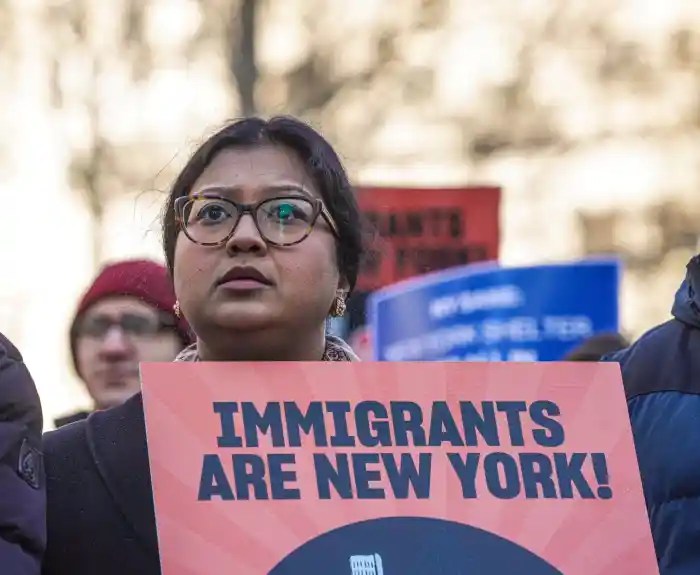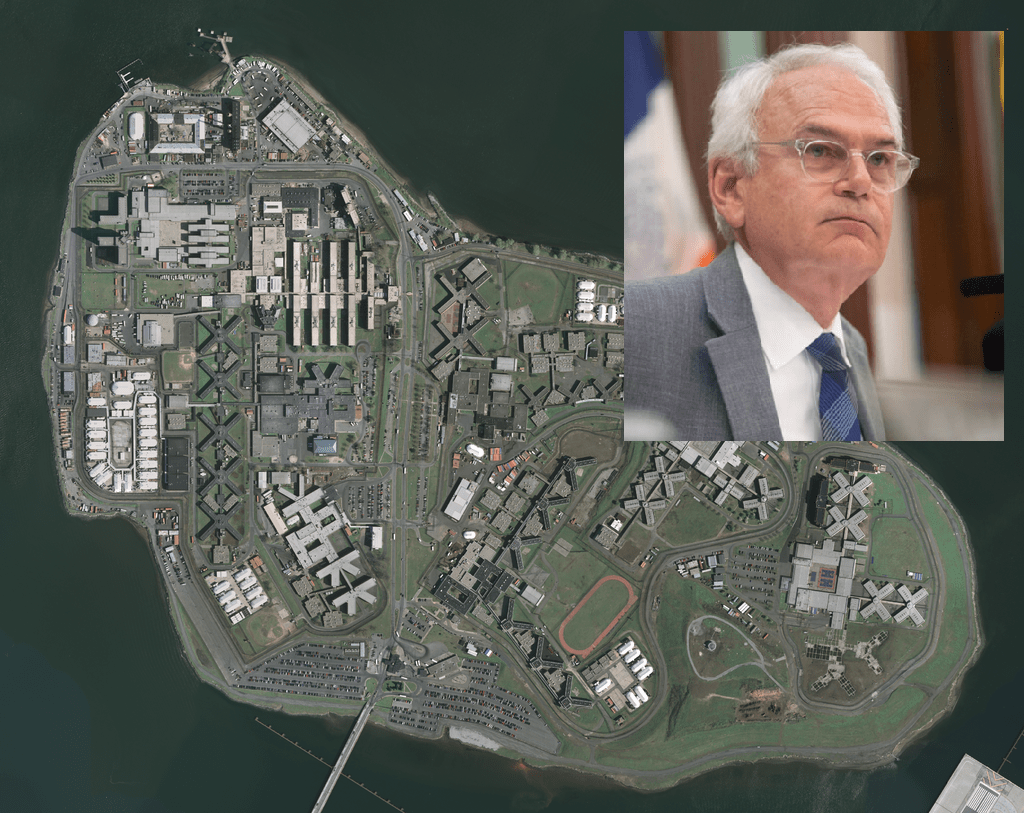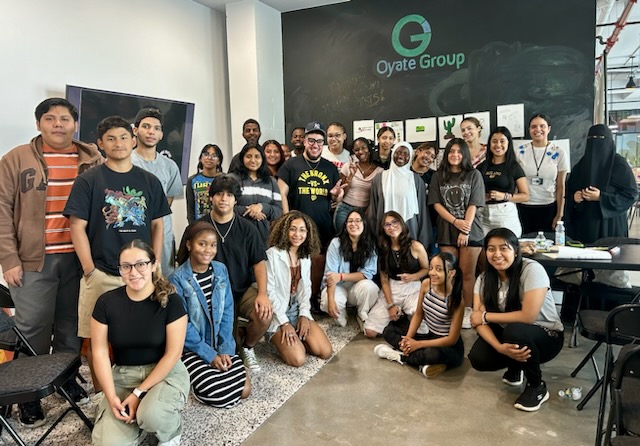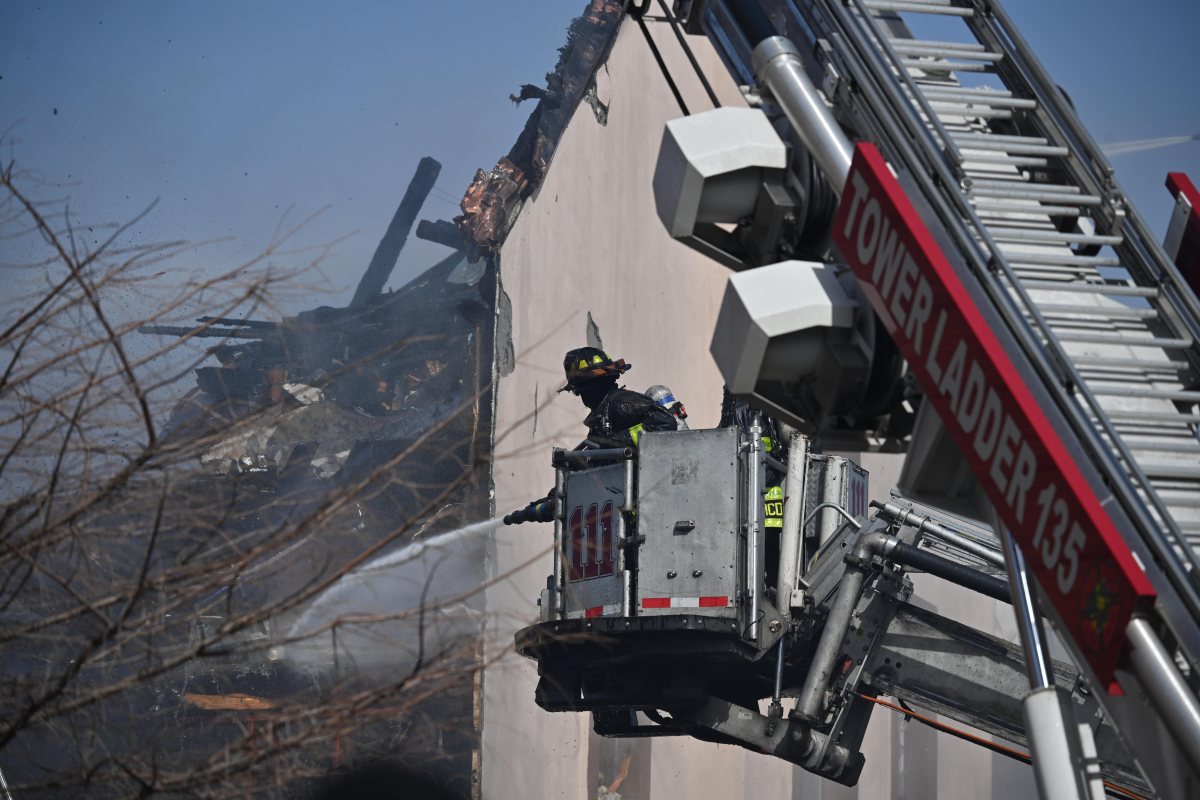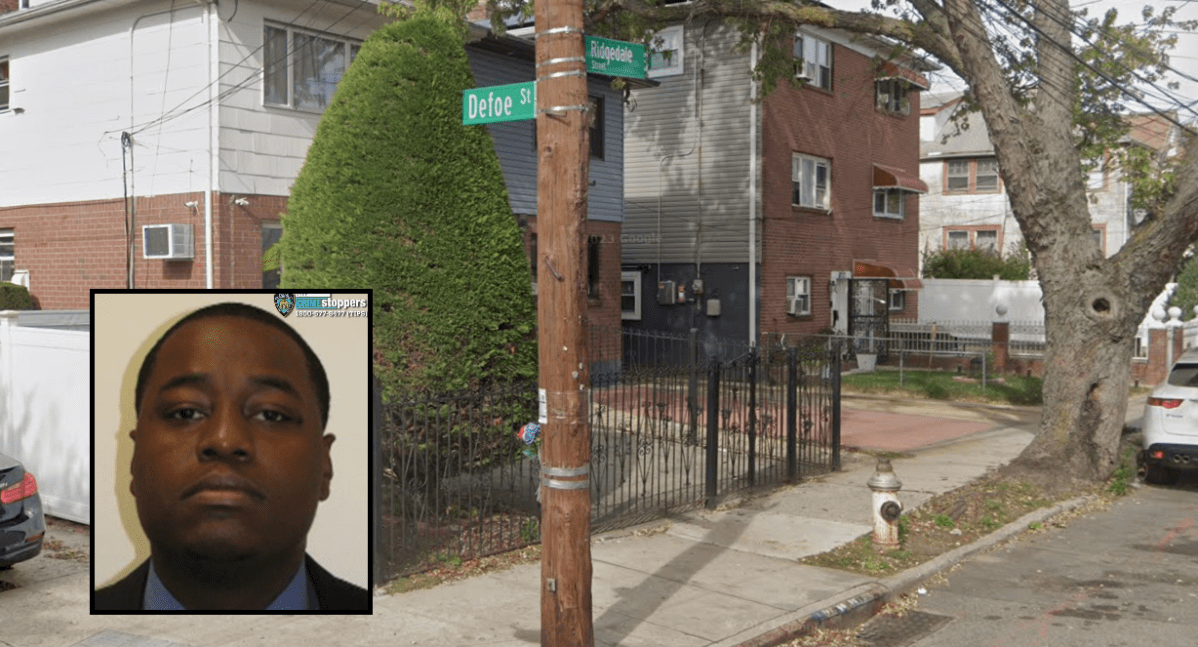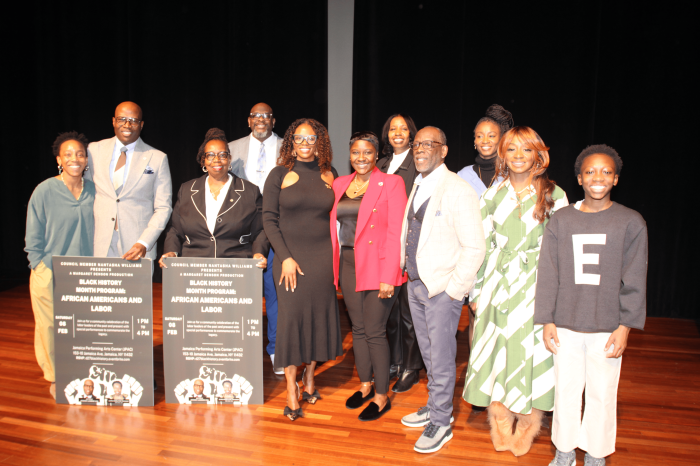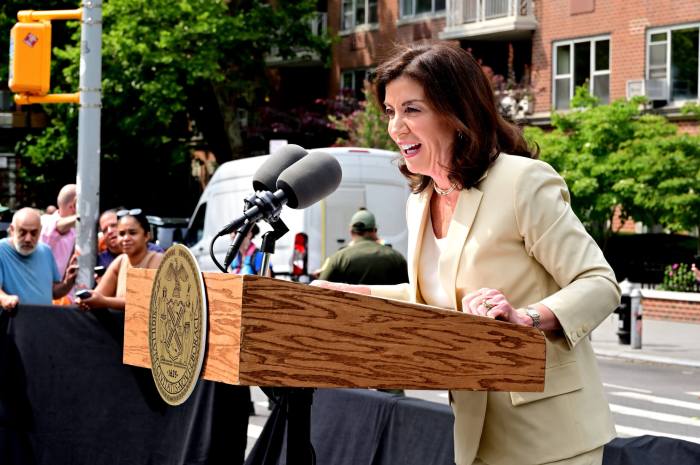Immigration laws continue to evolve under the Trump Administration, creating a complex, confusing and fearful environment for undocumented immigrants in New York.
Despite recent changes — including City Hall policy changes on handling ICE visits at local schools, shelters and hospitals – immigrants still hold specific rights designed to protect them from unjust actions by immigration enforcement agencies.
Recent actions by the Adams administration, including his frequent meetings with Trump’s appointed border czar, coupled with broader federal policies, have raised concerns among immigrant rights advocates.

One significant concern is the new directive that increases the likelihood of ICE arrests at locations such as shelters, hospitals, and other city properties. The Legal Aid Society has strongly condemned this policy shift, stating that it undermines New York City’s sanctuary laws and could deter individuals and families from accessing vital services.
“This new directive is a clear end run around New York City’s sanctuary laws and will deter individuals and families from accessing shelter, medical care, and other life-saving services. It also undermines the foundational trust between city workers and the populations they serve, jeopardizing public health and safety,” a representative with Legal Aid Society said. “This policy shift alarmingly aligns with recent federal immigration enforcement actions eliminating protections for sensitive locations such as hospitals, schools, and places of worship. Such measures erode the sanctity of these institutions and sow widespread fear within immigrant communities,” the spokesperson said.
Advocates are actively urging Mayor Eric Adams to rescind the directive, reaffirming New York’s commitment as a sanctuary city. The New York Working Families Party has also condemned the Mayor’s actions, expressing that Adams “attempted to intimidate city workers into opening our school and hospital doors for ICE, betraying immigrant communities.”
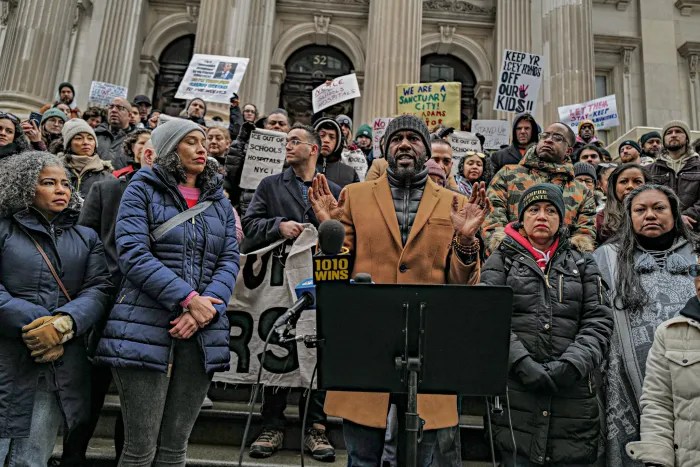
Hasan Shafiqullah, an attorney with the Legal Aid Society, illuminated the current situation and the rights available to undocumented immigrants, including the broadness of enforcement priorities.
“Anyone who’s not a US citizen could be at risk either because they’re undocumented or they have status, but maybe they’ve done something that now makes them removable,” Shafiqullah told amNewYork Metro. “It’s not just because I have a criminal conviction that they’ll be targeted. Anyone is, and everyone is currently being targeted.”
In recent months, ICE representatives have allegedly been appearing at workplaces and increasing traffic stops, according to Shafiqullah. In situations occurring outside the home, the team reminds individuals they are allowed to ask questions or remain silent.
“If I’m out in public, I have to say, am I free to leave? If they say you’re not under arrest, you are free to leave. I have the right to calmly and politely walk away. I don’t have to answer any questions,” he said. “I have the right to remain silent. I have the right to not give my name. I have the right to not give my country of origin I don’t have to disclose information that might make it easier for them to engage an enforcement actions against me.”
Shafiqullah also addressed the issue of expedited removal, which can affect an individual’s due process rights. Expedited removal is the process in which someone can be deported without ever seeing a judge. It’s often reserved for those found near the border, those with outstanding removal orders, committed fraud or falsely claimed to be a U.S. citizen.
“People need to really educate themselves and know what their rights are. It’s helpful for people to know what a judicial warrant is versus an administrative order,” he said. “People need to know what they’re looking at because if it’s a judicial warrant, we don’t want them to have their door broken down.”
Shafiqullah encourages everyone to monitor updates regarding immigration policy changes that may impact the rights of undocumented immigrants, engage with local immigrant rights organizations to advocate for policies and protections for undocumented individuals, and spread awareness about the rights of undocumented immigrants within their own community or on social media.
Organizations like Legal Aid Society and the New York City Liberties Union share immigration resources online to further educate New Yorkers.
Key Rights for Undocumented Immigrants in New York
Understanding immigration rights is the first step in safeguarding against potential overreach by Immigration and Customs Enforcement. Here’s a breakdown of essential rights:
- Immigrants have the right to remain silent if approached by an immigration officer. They are not required to answer questions about their status or provide identification.
- ICE officers cannot enter their home without a warrant issued by a judge. If ICE appears at their door, they do not have to open it and they are allowed to ask for any warrant to be slipped under the door and verify its legitimacy.
- Migrants have the right to refuse to answer questions. If asked about their immigration status, they can simply say, “I have the right to remain silent.”
- U.S. citizens are not required to show immigration documents. As an undocumented individual, they can decline to provide any documentation or information regarding their status.
- If arrested by ICE, individuals have the right to request a lawyer and to remain silent until they speak with one. Immigrants are not entitled to a public defender, but they can hire a private attorney.
- Non-citizens have the right to contact their consulate if arrested. Law enforcement must allow consular officials to visit or speak with them if they wish to do so.



